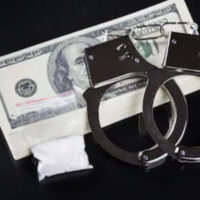What are the Penalties for Unlawful Possession of Illegal Drugs in Virginia?

In addition to other drug crimes, the Commonwealth of Virginia makes it unlawful to possess illegal drugs, which are referred to legally as controlled substances. If a person violates these laws, they are guilty of unlawful possession and subject to criminal penalties, including jail or prison time and substantial fines.
At this juncture, it is important to note that the penalties below only relate to the unlawful possession of controlled substances and marijuana. Virginia law does provide certain exceptions for the lawful possession and distribution of such substances. Though these exceptions are generally limited to the medical and research contexts.
Possession of Schedule I/II Controlled Substances
Code of Virginia Section 18.2-250 makes it a Class 5 felony to possess Schedule I/II substances. These are the most dangerous and addictive drugs, including heroin and LSD in Schedule I as well as cocaine and methamphetamine in Schedule II.
Upon conviction for a Class 5 felony, the offender can expect to face prison sentence between one and 10 years as well as $2,500 in fines.
Possession of Schedule III Controlled Substances & Marijuana
Section 18.2-250 makes it a Class 1 misdemeanor to possess a Schedule III controlled substance, such as codeine or morphine. It is also a Class 1 misdemeanor to possess marijuana under Code of Virginia Section 18.2-250.1.
Upon conviction for a Class 1 misdemeanor, the offender can expect to face criminal punishment up to and including one year in jail and $2,500 in fines.
Possession of Schedule IV Controlled Substances
Section 18.2-250 makes it a Class 2 misdemeanor to possess a Schedule IV controlled substance, such as alprazolam (also known as Xanax) or diazepam (also known as Valium).
Upon conviction for a Class 2 misdemeanor, the offender can expect to face criminal punishment up to and including six months in jail and $1,000 in fines.
Possession of Schedule V Controlled Substances
Section 18.2-250 makes it a Class 3 misdemeanor to possess a Schedule V controlled substance, such as
Upon conviction for a Class 3 misdemeanor, the offender can expect to face a maximum criminal punishment of $500 in fines.
Possession of Schedule IV Controlled Substances
Section 18.2-250 makes it a Class 3 misdemeanor to possess a Schedule V controlled substance, which includes prescription-only drugs that is not classified in the other schedules and similarly dangerous substances.
Upon conviction for a Class 3 misdemeanor, the offender can expect to face a maximum criminal punishment of $250 in fines.
Do You Need Legal Help?
If you have legal questions about charges for unlawful possession or other drug crimes in Virginia, it can be unquestionably beneficial to contact a well-practiced criminal defense lawyer. The Leesburg drug crimes lawyers at Simms Showers LLP have decades of combined legal experience defending against drug crimes in Virginia, including unlawful possession of controlled substances. If you need legal help with criminal defense, contact us today for a free initial consultation.
https://www.simmsshowerslaw.com/how-does-virginia-classify-illegal-drugs-other-substances/
